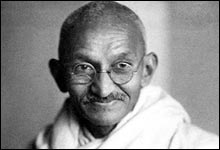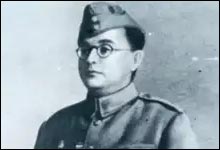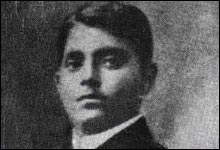GREAT INDIAN PERSONALITIES : Bal Gangadhar Tilak

Bal Gangadhar Tilak, born on July 23 1856,was one of the earliest architect of the edifice of nationalist movement in India. He received formal and College education mainly in Poona. He passed B.A. in first class and it was during this time he was highly influenced by western thinkers like Hegel, Kant, Spencer, Mill and Bentham. The studies made him realise the state in which his motherland existed under British Rule.
After graduation he spurned the Government service and devoted his time in national awakening. Bal Gangadhar Tilak joined fellow activists like Agarkar, Chiplunkar and Namjoshi to set up New English School. He joined the Indian National Congress, which acquired a new dimension because of his stature. He opposed the 'Age of Consent Bill' strongly. It was at this time he emerged as a strong-voiced politician. In 1896, Bombay was hit by a deadly Plague.
Tilak, who edited the newspapers, 'Kesari' and 'Marattha', hit backAfter graduation he spurned the Government service and devoted his time in national awakening. He joined fellow activists like Agarkar, Chiplunkar and Namjoshi to set up New English School. He joined the Indian National Congress, which acquired a new dimension because of his stature. He opposed the 'Age of Consent Bill' strongly. It was at this time he emerged as a strong-voiced politician. In 1896, Bombay was hit by a deadly Plague. Tilak, who edited the newspapers, 'Kesari' and 'Marattha', hit back strongly at the administrative system charging them of taking inadequate measures and ignoring responsibilities.

The British lawmakers didn't find it amusing and he was jailed for 18 months. In1907, he formed a radicalist faction inside the Congress and started the Home-Rule League along with an Irish lady, Ms. Annie Besant. Though a conservatist towards social reforms, he was a pioneer to foresee that mass support was needed to make his motherland free from imperialistic clutches. In order to bring the Maratha people together on the same platform, he started the celebration of Shivaji Festival.
In 1908 he aimed at militant mass movement and expressed his views on Swarajya at the Calcutta session of I.N.C. In the same year he was arrested for conspiring against the Queen when he raised his voice against the partition of Bengal. He was jailed for 6 years. When the 'Indian Reforms Act' was introduced in 1919, he rejected it describing it as inadequate, disappointing and unsatisfactory. He launched the Congress Democratic Party in 1920 but before he could take up the action, he suddenly died on 1st August, leaving behind millions of mourners. A champion of the downtrodden people, Tilak was given the sobriquet "Lokmanya". He also authored books such as 'Geeta Rahasya" and "Arctic Home of Vedas".


